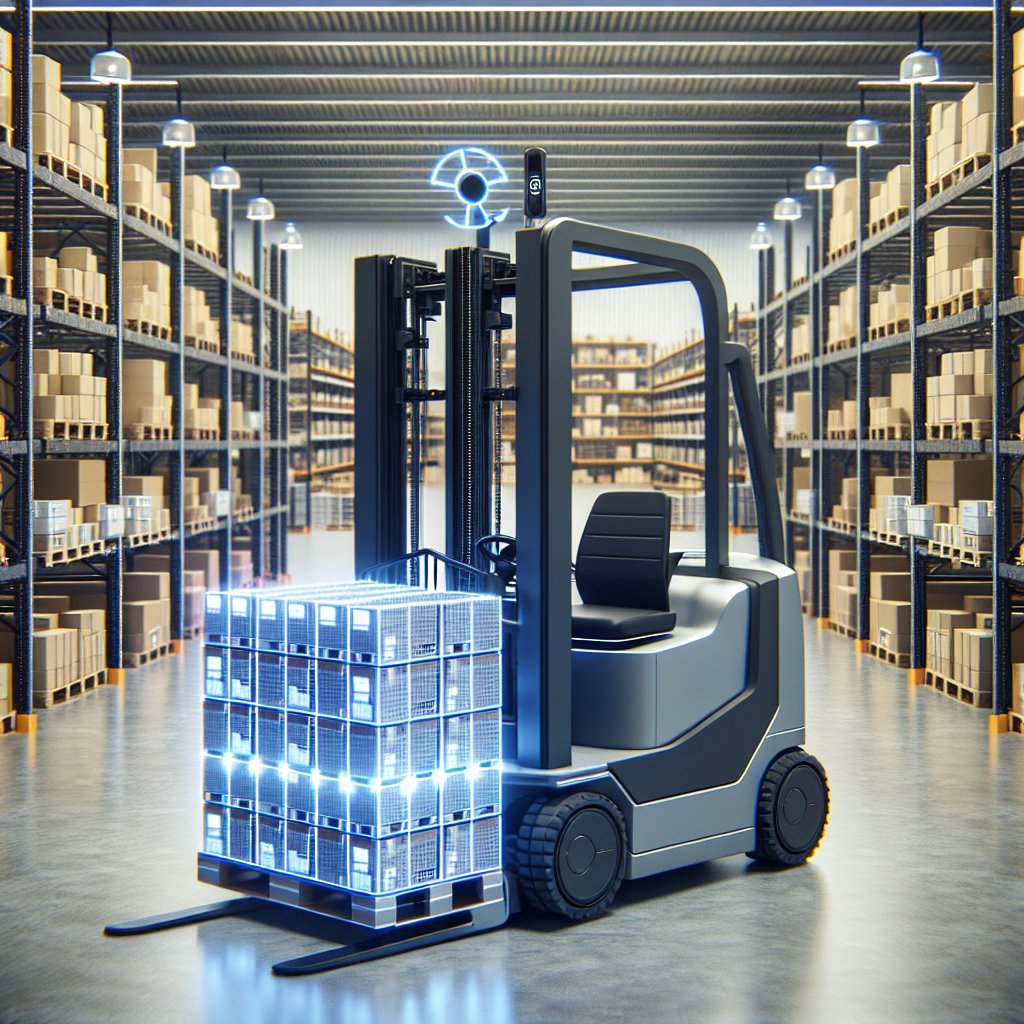
The future of autonomous forklifts in warehouse automation is a topic that is rapidly gaining attention as industries seek to enhance efficiency and safety in their operations. As technology continues to evolve, the integration of autonomous systems in warehouses is becoming more prevalent, offering a glimpse into a future where human intervention is minimized, and productivity is maximized. This article delves into the advancements in autonomous forklift technology, the benefits they bring to warehouse operations, and the challenges that need to be addressed for widespread adoption.
Advancements in Autonomous Forklift Technology
Autonomous forklifts are at the forefront of warehouse automation, leveraging cutting-edge technologies such as artificial intelligence (AI), machine learning, and advanced sensor systems. These technologies enable forklifts to navigate complex warehouse environments with precision and efficiency. One of the key advancements in this field is the development of sophisticated navigation systems that allow forklifts to operate without human intervention.
Modern autonomous forklifts are equipped with a range of sensors, including LiDAR, cameras, and ultrasonic sensors, which provide a comprehensive view of their surroundings. These sensors work in tandem with AI algorithms to process data in real-time, allowing the forklifts to make informed decisions about their movements. This capability is crucial for avoiding obstacles, optimizing routes, and ensuring the safe handling of goods.
Another significant advancement is the integration of machine learning algorithms that enable autonomous forklifts to learn from their environment and improve their performance over time. By analyzing patterns and adapting to changes in the warehouse layout, these forklifts can enhance their operational efficiency and reduce the likelihood of errors. This continuous learning process is a key factor in the evolution of autonomous systems, making them more reliable and effective in dynamic environments.
Benefits of Autonomous Forklifts in Warehouse Operations
The adoption of autonomous forklifts in warehouses offers numerous benefits that can transform the way businesses operate. One of the most significant advantages is the potential for increased efficiency. Autonomous forklifts can operate 24/7 without the need for breaks, allowing for continuous operations and faster turnaround times. This capability is particularly beneficial in industries with high demand and tight deadlines, where every minute counts.
In addition to efficiency, autonomous forklifts contribute to enhanced safety in the workplace. Human-operated forklifts are often involved in accidents due to human error, fatigue, or lack of attention. By eliminating the need for human drivers, autonomous forklifts reduce the risk of accidents and create a safer working environment. The advanced sensor systems and real-time data processing capabilities of these forklifts ensure that they can detect and respond to potential hazards promptly, further enhancing safety.
Cost savings are another compelling benefit of autonomous forklifts. While the initial investment in autonomous technology may be significant, the long-term savings in labor costs, reduced downtime, and minimized damage to goods and infrastructure can outweigh the upfront expenses. Businesses can also benefit from increased productivity and efficiency, leading to higher profitability and a competitive edge in the market.
Challenges and Considerations for Adoption
Despite the promising benefits, the adoption of autonomous forklifts in warehouse operations is not without challenges. One of the primary concerns is the integration of autonomous systems with existing warehouse infrastructure. Many warehouses are not designed to accommodate autonomous vehicles, requiring significant modifications to ensure compatibility. This can involve reconfiguring layouts, installing new communication systems, and upgrading existing equipment, all of which can be costly and time-consuming.
Another challenge is the need for robust cybersecurity measures to protect autonomous systems from potential threats. As these forklifts rely on data and connectivity to operate, they are vulnerable to cyberattacks that could disrupt operations or compromise safety. Implementing strong cybersecurity protocols and regularly updating software are essential steps to safeguard against such risks.
Furthermore, there is a need for regulatory frameworks and industry standards to guide the deployment of autonomous forklifts. As the technology is still relatively new, there is a lack of comprehensive regulations governing their use. Establishing clear guidelines and standards will be crucial to ensure the safe and effective integration of autonomous forklifts into warehouse operations.
The Road Ahead
The future of autonomous forklifts in warehouse automation is promising, with ongoing advancements in technology paving the way for more widespread adoption. As businesses continue to recognize the benefits of automation, the demand for autonomous forklifts is expected to grow. However, addressing the challenges and considerations outlined above will be essential to realizing the full potential of this technology.
Collaboration between technology developers, industry stakeholders, and regulatory bodies will be key to overcoming these challenges and ensuring the successful integration of autonomous forklifts into warehouse operations. By working together, these entities can create a future where warehouses are more efficient, safer, and better equipped to meet the demands of a rapidly changing world.
In conclusion, the future of autonomous forklifts in warehouse automation holds great promise for transforming the logistics and supply chain industry. With continued innovation and collaboration, autonomous forklifts have the potential to revolutionize warehouse operations, driving efficiency, safety, and profitability to new heights.

